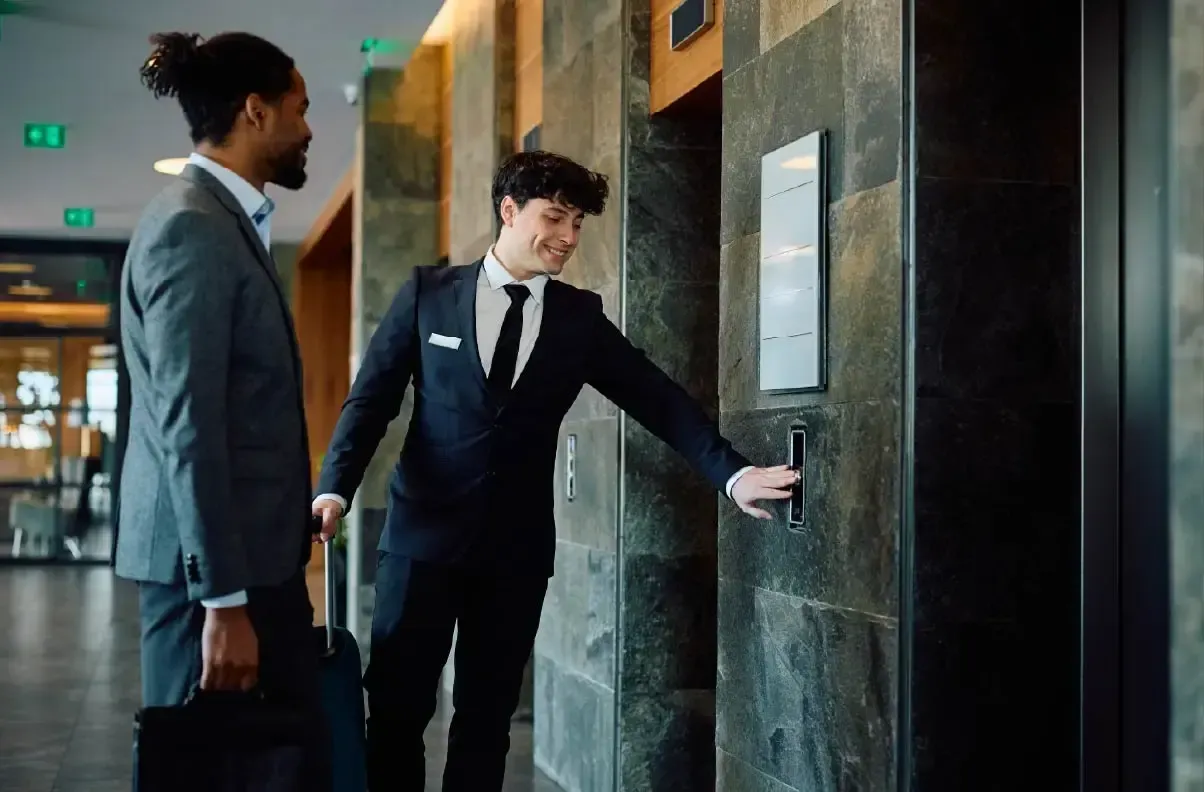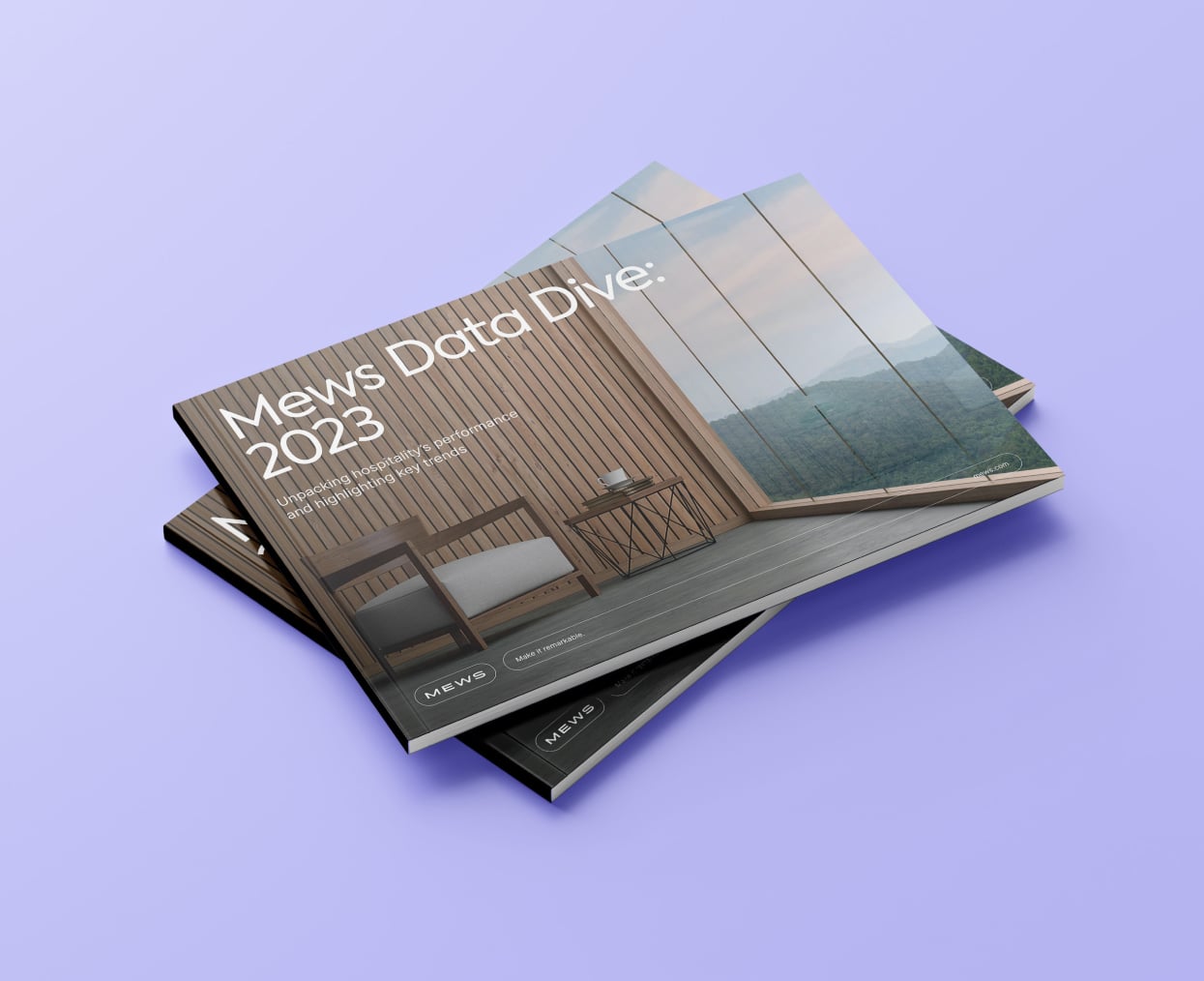Mews Unfold 2023 took place a couple of weeks ago and boy, it was special. If you missed it, you can view recordings of all our main stage sessions here.
One of our incredible speakers was Navneet Bali, Founder and CEO of LyvInn, whose flagship property is LyvInn Frankfurt Messe, a 164-room hotel in Germany. They’re a great example of hybrid hospitality, blending a lifestyle hotel and hostel while also providing people with a modern space to live and work.
Navneet was part of session five’s panel at Unfold, discussing the topic of Hybrid hospitality and the effect of distributed living, but we couldn’t let him leave without picking his brain for some more thoughts about the new standards in hospitality.
What do you think the new standard in hospitality is?
I think of the new standards from the lens of the younger generation of travelers. They want to connect and have experiences in a meaningful way, not only with other travelers but with the places they travel to.
And importantly, all of this is in the context of maintaining a strong concern for the environment, human rights and equality and diversity.
What are three big shifts you’re seeing in the industry?
Firstly, technology. Digitalization and now AI is influencing the way we create more disruptive business models, making it easier than ever to think differently and try new things. Also, new research and tech around energy will greatly influence hospitality linked services and products.
Second, climate change and concern for the environment. How and where we travel – and the cost and value associated – will influence our choices more and more. This is already happening, particularly with Millennials and Gen Z, but it will continue to spread across all demographics.
Thirdly, the growth of Asia and Africa. As the economic gravity shifts dramatically toward these continents in the 21st century, it will create huge new opportunities in hospitality. The first movers and early adopters in these regions will likely see big rewards.
What’s going to help these changes and what could potentially slow them down?
The biggest enabler is technology. This is true for almost every area, as it frees up hotels to be more innovative and engaging while giving guests more personalized experiences.
The greatest hurdles are things that are difficult for hoteliers to control, such as geo-political forces creating walls and barriers to freedom of movement.
What does diversity in hospitality mean to you?
We should strive to create equal opportunities for all, regardless of sex, gender, race or any other character trait. It’s really important that we support women in the top echelons of hospitality management – and take steps to ensure more women can reach these roles. It’s currently a male dominated domain and it shouldn’t be.
Any great book or podcast recommendations to inspire us?
I’m currently reading the biography of Napoleon, Napoleon the Great, by Andrew Roberts. My father was in the Indian Army and admired Napoleon, so I was always wanted to know more about him. One of the things that impressed me most was how he created a complete meritocracy at a time when European society was very feudal and hierarchical. He was, of course, a product of the French Revolution, but this was only meritocracy for men!
The Rest is History is my favorite podcast. It features two historians covering different topics from the classical and the modern world in a way that’s both insightful and highly entertaining.
If you’re looking for some great television, try Fauda (which means chaos ) on Netflix. It’s an Israeli series covering the hostility between Israel and Palestinians in a gripping manner. It’s very violent but I love the scenes of the West Bank, Gaza and Israel – they’re places that I enjoy visiting and I actually signed a deal for a hotel in Tel Aviv. It’s an amazing place, full of history, great food and wonderfully hospitable people.
All this comes through in the series, as well as the complex politics of this intractable conflict. The main lesson is that there are no winners, and ultimately the characters on either side want the same thing: for their children to be safe and live in peace.
To catch up on Navneet’s session at Unfold – and every other speaker from the main stage – check out our Unfold archive.
Written by
Tom Brown
When Tom isn't creating outstanding marketing content for Mews as Principal Copywriter, he writes fiction for himself. Either way, he only uses the best words.








